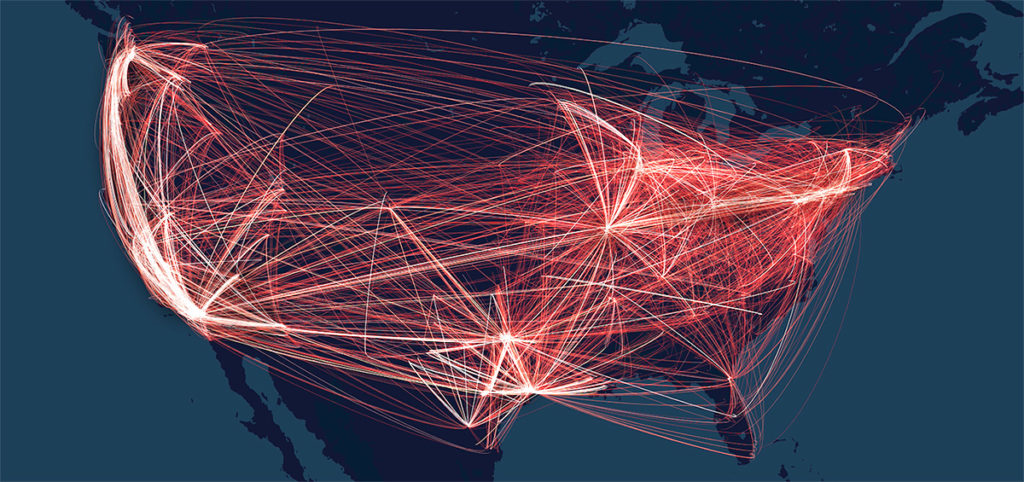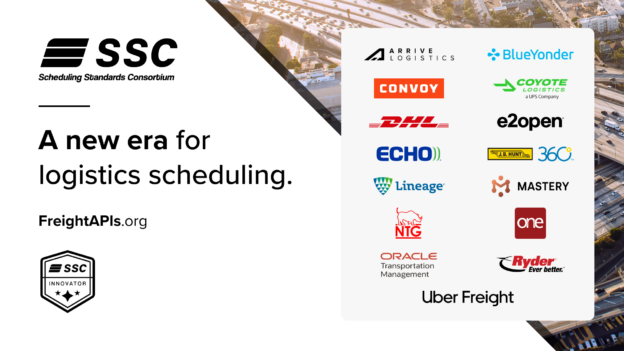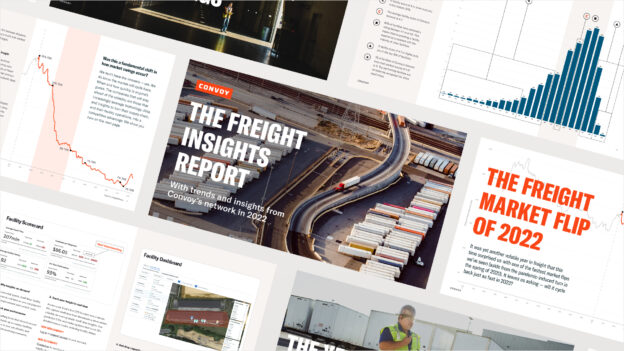10 Things To Know About Traditional Freight Brokers
Industry Insights, Shippers • Published on May 11, 2020
Freight brokers help connect shippers with carriers. For shippers, brokers can reduce complexity by finding drivers for their loads. For carriers, brokers provide new business leads, helping them keep their trucks on the road.
Traditional freight brokerages operate by hiring individual brokers who manually match drivers to shipments. The broker takes a brokerage fee for each load. This brokerage fee is the margin between what they charge the shipper and what they pay the carrier.
This proved to be a lucrative business: once a niche industry, the number of licensed freight brokers in the US grew to over 17,000 by 2017. They have become an integral part of how the freight industry operates, and they present a handful of strengths and shortcomings for shippers to consider.
3 ways freight brokers can help traditional freight
- Freight brokers can provide additional capacity
There are times when shippers need to transport more product than they originally planned for. The need for more capacity may arise during a predictable time of year like the holidays or produce season. It may also come during an unpredictable surge in demand, like we saw in March 2020 in the COVID-19 crisis.
Shippers may have difficulty securing additional capacity through private fleets or asset-based carriers. Traditional freight brokers can be a resource for additional capacity when this is the case. - Brokers provide more flexibility than asset-based carriers
Shippers transport the majority of their freight through contracts tied to a specific carrier or price point. However, shippers may need to find alternatives during times when markets shift.
For example, in tight markets when spot rates increase, shippers may face tender rejections from their contracted carriers. When this occurs, brokers can fill in the gap to transport freight, albeit at a higher cost to the shipper. Conversely, a shipper may turn to brokers during soft markets to secure loads at a lower price than their contracted rate. - Brokers build personal relationships with shippers
A freight broker’s business is built on relationships. Brokers earn their living from the fees they charge to shippers, and so it’s important for them to learn the shipper’s business and provide a high level of service to maintain that relationship.
Global Trade Mag published an overview of why these relationships are so crucial to a freight broker’s business. A shipper may continue to work with a broker because of the working relationship they’ve established.

7 areas where traditional freight brokers can fall short
- Time-consuming operations
Brokers make hundreds of phone calls a day, asking where carriers have trucks available. They often coordinate via emails and track on spreadsheets. When things work well, an individual broker may match a truck to a load once every hour. This time brokers spend manually coordinating translates to more time shippers spend waiting to know whether their loads will be covered. - High middleman fees
Individual brokers are paid on commission, and so their incentive is to maximize how much they charge shippers and minimize what they pass on to carriers. An average brokerage fee ranges from 15% to 20%, though the numbers can go much higher than that. This translates to higher costs passed onto the shipper. - Limited pool of carriers
A traditional broker’s ability to supply the right truck to the right place at the right price is limited by the number of trucks in their individual Rolodex. That narrow view of the market means the likelihood any given broker can match the most ideal truck for the job (best price, highest quality, fewest empty miles) is inherently constrained. As a result, the load will often be covered by the ideal carrier for the broker as opposed to the ideal carrier for the shipper. - Less reliable for contract freight
When it comes to freight RFPs, brokers tend to bet on high-volume, desirable lanes and leave low-volume lanes under serviced. Traditional brokers have incentives to bid low on lanes because it helps them win more business. However, when the market tightens and trucking prices go up, brokers often reject the freight they earlier agreed to take. When this happens, a shipper will have to consult their routing guide or find another broker on the spot market. - Less resilient to volatile markets
Despite taking 15-20% middleman fees, traditional brokerage firms operate on thin margins because of their high overhead. This high overhead stems from their manual operating model: if an individual broker matches one load per hour, a brokerage must employ hundreds of brokers to service only a thousand loads per day.
This leaves traditional brokerages particularly vulnerable during volatile and recessionary market conditions, as we’ve recently seen with a wave of layoffs affecting brokerages like TQL and others. For a shipper, this can mean less reliable coverage and service at times when you may need it most. - Slow response when things go wrong
Sometimes the unexpected happens. A carrier cancels a load. A shipper needs to adjust to a pickup time. When plans change, shippers need a partner who will recognize a problem and fix it immediately. They need technology that will auto-correct 24/7. But traditional freight brokerages operate manually, so when a missed pickup happens at 11PM, a broker may only learn about it during business hours the next day. To remedy the error, traditional brokers will manually dial their carrier network to find someone to pick up the load. This translates to higher risk for shippers. - A lack of supply chain visibility
With traditional freight brokers, shippers lose visibility of freight as soon as a load leaves the docks. This means incidentals incur without an ability to find the root cause. Key performance metrics like on-time pickup (OTP) and on-time delivery (OTD) may be inaccurate due to manual reporting. To collect that data and insights that are most valuable, shippers need access to technologies that traditional freight brokers are lacking.

Why companies prefer digital freight networks over brokers
The past five years have seen the rise of the digital freight network, a fully connected freight marketplace that uses machine learning, automation, and other software to efficiently connect shippers and carriers. This marketplace business model aligns the interests of shippers and carriers, reducing both the cost structure and the time it takes to find the best truck for every load.
When it comes to handling volatile markets, according to Gartner, “Digital freight networks are helping shippers overcome COVID-19 challenges by delivering the reliability of an asset-based carrier and the flexibility of a broker.” Convoy’s digital freight network proved resilient during the first months of the COVID-19 crisis, providing shippers a number of benefits.
Convoy’s digital freight network is always on, so that if the unexpected occurs, our tech identifies it immediately and auto-corrects. And to ensure 24/7 service, we have a dedicated team available around the clock to address the situation.
When it comes to supply chain visibility, digital freight networks collect massive amounts of data and translate the data into useful insights for shippers. Mark Young, Director of Procurement for Anheuser-Busch said in an interview with Supply Chain Deep Dive, “I see the tech-enabled carrier space as something that provides transformational value.” The article reports that data provided by digital freight networks has allowed Young to view Anheuser-Busch’s KPIs in a new light, and reevaluate which measures are valuable and which are not.
More resources on how digital freight networks can help shippers:
- Benefit with better reporting, more visibility, and real-time pricing and decision-making at lower costs: 6 areas the digital freight network is driving innovation and solutions
- If you’re interested in learning more about shipping with Convoy, now is the best time to get started. Sign up with Convoy today.



